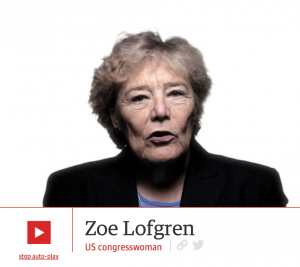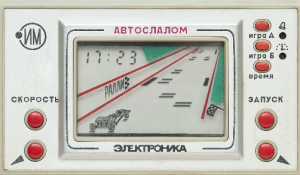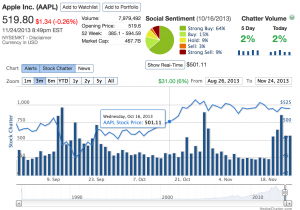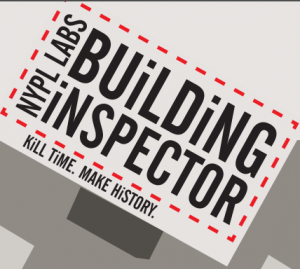Tyler Trkowski has written a Feature for NOISEY (Music by Vice) on Rap Game Riff Raff Textual Analysis. It is a neat example of text analysis outside the academy. He used Voyant and Many Eyes to analyze Riff Raff’s lyrical canon. (Riff Raff, or Horst Christian Simco, is an eccentric rapper.) What is neat is that they embedded a Voyant word cloud right into their essay along with Word Trees from Many Eyes. Riff Raff apparently “might” like “diamonds” and “versace”.
HedgeChatter – Social Media Stock Sentiment Analysis Dashboard
HedgeChatter – Social Media Stock Sentiment Analysis Dashboard is a site that analyzes social media chatter about stocks and then lets you see how a stock is doing. In the picture above you can see the dashboard for Apple (APPL). Rolling over it you can see what people are saying over time – what the “Social Sentiment” is for the stock. I’m assuming with an account one can keep a portfolio and perhaps get alerts when the sentiment drops.
To do this they must have some sort of text analysis running that gives them the sentiment.
Building Inspector by NYPL Labs
The New York Public Library has another cool digital project called the Building Inspector. They are crowdsourcing the training and correction of a building recognition tool that is combing through old maps. You see a portion of a map with red dots outlining a building and you click “Yes” (if the outline is correct), “No” (if it is wrong), and “Fix” (if it is close, but needs to be fixed.)
They also have a neat subtitle to the project, “Kill Time. Make History.”
Student game world takes London maps into 3D space
Wired UK and some other sources have been blogging the Student game world that takes historic London maps into 3D space. The flythrough (YouTube) is from the winning entry to the Off the map collaboration/competiton that brought together maps from the British Library, Crytek’s CryENGINE, and the GameCity collaboration. Undergraduate teams used game technologies to model historic sites from British Library maps. The winning flythrough by Pudding Lane Productions feels like a recreation I would want to play in.
Research Records Stewardship Guidance Procedure
The University of Alberta has just passed a Research Records Stewardship Guidance Procedure which says that we “are responsible for the stewardship of the research records created, acquired, managed or preserved.” The procedure specifically says,
The Principal Investigator (PI) is responsible for the collection, maintenance, confidentiality, and secure retention of research records until such time as the University may assume responsibility for their management and preservation.
The good news is that we have excellent support in the Library for dealing with research records. We have the Education and Research Archive where we can deposit data. We also have staff in the Digital Initiatives unit of the Library who can help us develop research management plans.
I joined forces with Geoff Harder and Chuck Humphrey to give a presentation on Data Management Plans (my slides).
▶ Perseus Digital Library: Diachronic View
Perseus Digital Library Diachronic View is a YouTube video put together by Mihaela as part of a project we are working on as part of INKE. We started asking about the evolution of digital humanities interfaces which then led us to asking if there were projects that have been around long enough that their interfaces may have changed. This led us to the Perseus project which existed before the web. Using the Internet Archive and other sources we tried to reconstitute a history of major versions of the interface from the first HyperCard interface. We then created this video to show the evolution. We are now collaborating with Perseus to study the evolution of their interface, to preserve key screens, and to improve the interface for mobile devices.
NSA files decoded: Edward Snowden’s surveillance revelations explained

The Guardian just published a wonderful essay with embedded video on the NSA files decoded: Edward Snowden’s surveillance revelations explained. The essay provides an overview of what the Snowden revelations tell us about the NSA and its collection of metadata. The essay has short video clips embedded from interviews that play as you scroll down. There are panels with redacted slides from the NSA and there are panels with documents. The essay has 6 parts ending with “What Now?” which speculates on how the courts or Congress will respond.
Finding Life After Academia — and Not Feeling Bad About It
The New York Times has a good story on Finding Life After Academia — and Not Feeling Bad About It. The beginning of the article goes over the usual depressing factoids like
According to a 2011 National Science Foundation survey, 35 percent of doctorate recipients — and 43 percent of those in the humanities — had no commitment for employment at the time of completion. Fewer than half of Ph.D.’s are expected to land tenure-track jobs.
The articles then shifts to moves to try to define careers beyond the tenure track job for Ph.D.’s. For example they mention Katina Rogers Humanities Unbound: Supporting Careers and Scholarship Beyond the Tenure Track (PDF). This report from the Scholarly Communication Institute concludes with,
Equipping graduate students with the skills and literacies needed for 21st century scholarly work—from technical fluency to an understanding of organizational structures—is critical to ensuring continued rigorous and creative research and other work products. Remaining wedded to outmoded systems, including a model of apprenticeship in higher education that reinforces the false assumption that professorship is the only meaningful career for humanities doctoral recipients, does a tremendous disservice to all individuals and organizations that benefit from humanistic perspectives. (p. 21)
The article also mentions a white paper from Stanford on the The Future of the Humanities Ph.D.at Stanford that argues for reduced time to completion and “Redesigning graduate curricula to prepare PhD’s for a diverse array of meaningful, socially productive and personally rewarding careers within and outside the academy.” (p. 1) Finally they mention the Praxis Network which is focused on rethinking graduate training.
Pica Pic: retro handheld games collection

Eric just sent me the link to a fabulous site called Pica Pic | retro handheld games collection. The site lets you browse and play retro hand-held games like Nintendo Game & Watch toys and imitations. What is particularly impressive is that you play right on high-quality images of the toys.
Arts in 60 Seconds: Research Lectures
The University of Alberta has put together a set of short (60 second) lectures by faculty on what they do. See Arts in 60 seconds and ignore my one.

